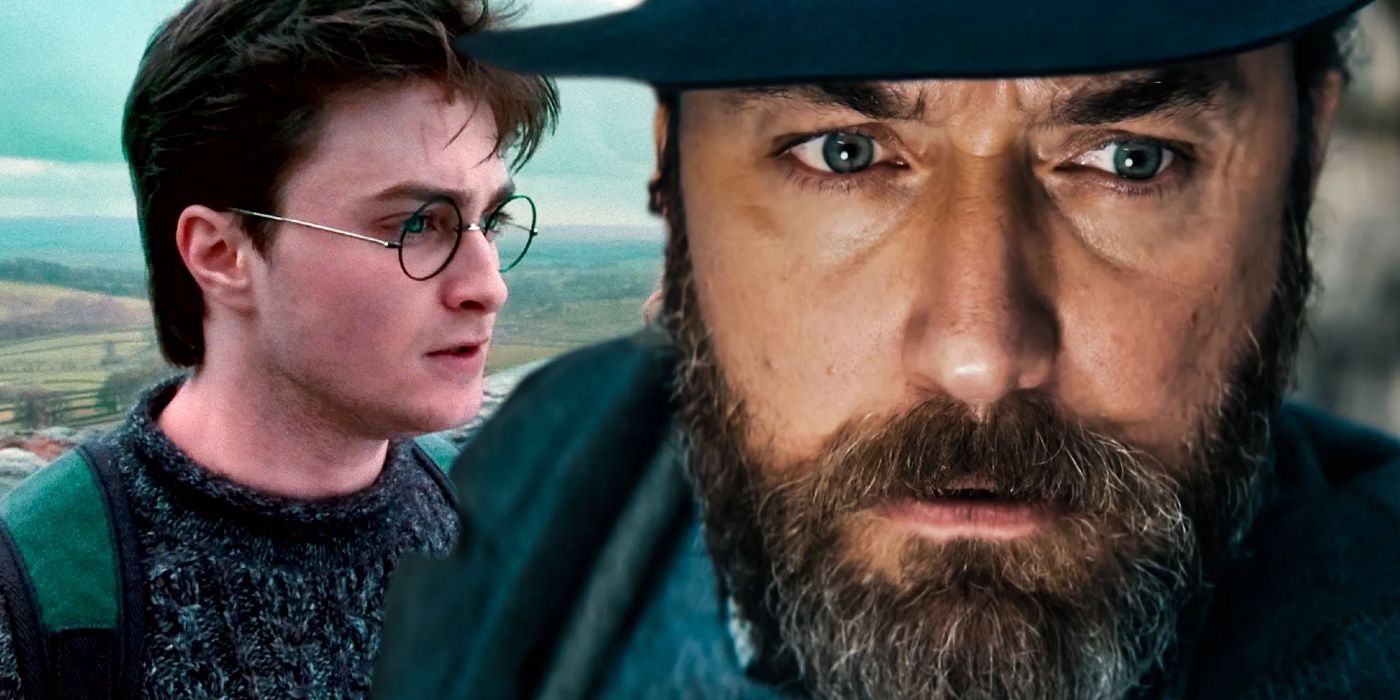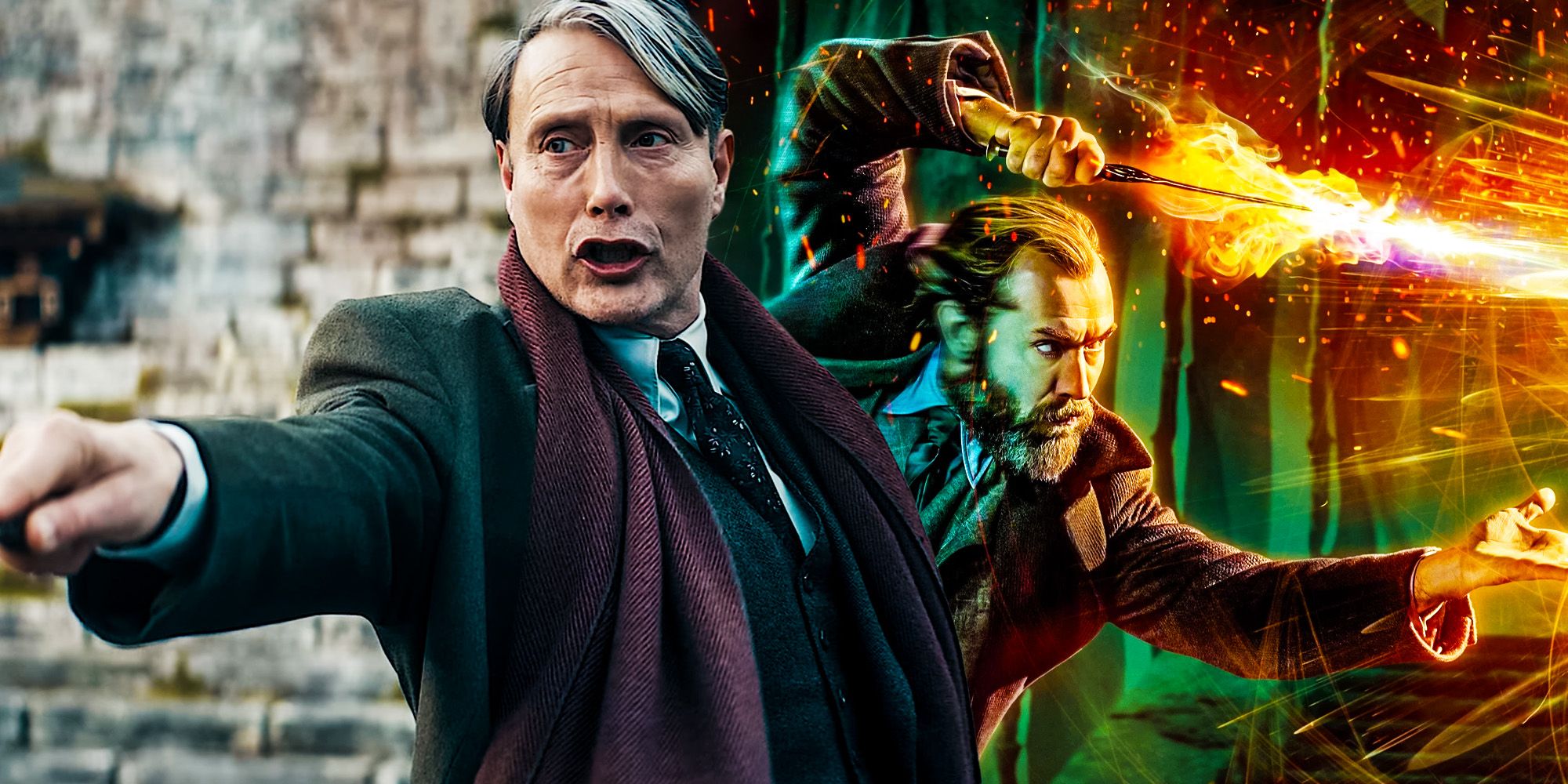Harry Potter's timeline has long been one of the most significant and immutable aspects of the series, yet Fantastic Beasts: The Secrets of Dumbledore's ending seems to put the long-established narrative in jeopardy. Over the course of both the main Potter series and the three Fantastic Beasts prequels, building on Rowling's chronology has been a crucial cornerstone for both audiences and filmmakers alike. This makes Fantastic Beasts 3's ending even more problematic, potentially posing an even more significant difficulty for the future of the series than the movie's middling box office and critical performances.
Ever since the first Harry Potter book came out in 1997, Potter lore has been relatively precise when it comes to key dates. Canonically, the original Harry Potter series spans the 90s, starting in 1991 and finishing in 1998 at the conclusion of Deathly Hallows – save for the infamous flash-forward scene in the epilogue. Keeping up this tradition, the Fantastic Beasts series was quick to establish its own timeframe, clearly beginning the series in 1926. This is followed by a jump to 1927 for The Crimes of Grindelwald and an even greater leap forward to 1932 for the third entry in the series.
Despite seeming fairly self-explanatory, this timeframe actually presents a serious problem for the franchise, especially where Fantastic Beasts 3's ending is concerned. In the film's final act, Dumbledore battles Grindelwald before swearing to hunt him down and defeat him. This foreshadows what many presume to be the series' climactic moment – the epic 1945 duel between the two adversaries that has since gone down in wizarding legend. Yet the fact that this seminal moment is known to take place 13 years after Fantastic Beasts: The Secrets of Dumbledore makes Dumbledore's threat ring hollow and seem almost preposterous. The idea that such a serious warning from arguably the greatest wizard of all time would take over a decade to come to fruition is laughable. As a result, Secrets of Dumbledore's 1932 date feels far too early for this encounter to take place and raises serious questions about what films 4 and 5 in the series might go on to do with the timeline
There are some possible explanations for the 13-year gap. It may be the case that Grindelwald's exposure in his quest to become Supreme Mugwump forces him into hiding where, much like Voldemort after him, he gathers his strength in the shadows, biding his time before the ideal moment arrives. Another possibility may be that, as happened with Hitler in the historical 1930s, Grindelwald is actually welcomed into the wizarding political fold in an attempt to contain his power and influence. Yet neither of these potential solutions explain why, when there was a fierce wizarding war raging with he and Dumbledore at the forefront, the delay was quite so lengthy. Consequently, the uncomfortable truth is that Fantastic Beasts' timeline doesn't add up quite as well as it might.
The much-publicized problems with the franchise mean it is uncertain whether audiences will ever get a concrete answer to this particular problem. Nevertheless, by ending Fantastic Beasts: The Secrets of Dumbledore on such a dramatic moment of conflict between Dumbledore and Grindelwald, the series has inadvertently forced itself down a narrative dead end. Dumbledore's reputation, coupled with Grindelwald's documented actions, mean there is no satisfying explanation for a 13-year wait between fights. Whatever direction Fantastic Beasts 4 takes, its first priority is now surely to try and salvage the previously concrete Harry Potter timeline. As Fantastic Beasts 3's ending makes clear, this is far from straightforward.


